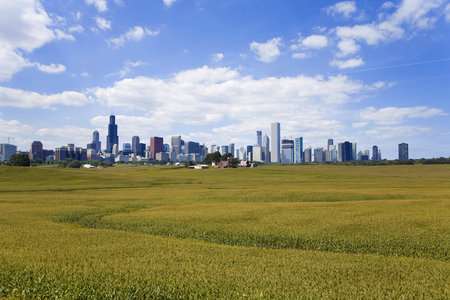Luxury mansion owners maintain “farm status” and the tax breaks that go with it
By Jennifer Jackson
British Columbia’s farmland is attracting the wrong buyers for the wrong reasons, according to an investigation by the Globe and Mail. The investigation highlights some municipalities’ flawed control of urban growth on farmland.
B.C. law states that any agricultural properties more than two acres large can keep their “farm status” – along with numerous tax breaks.
The catch? The landowners have to sell at least $2,500 worth of farm products annually; these products can include anything from hay to Christmas trees.
This farmland “loophole” has likely been the cause for numerous investors to build large luxury homes and private hotels on prime agriculture land – many of which sit empty majority of the time.

Bob Fisher, a beekeeper south of Vancouver, witnessed first-hand the development of a large private hotel adjacent to his land.
The building was originally approved to be a single-family farmhouse. Now, however, it is now an empty 23,000 square foot mansion, designed by Chinese investors to be a hotel for international clients, according to the investigation.
“They took out an acre and a half from the original (9.9-acre blueberry) farm in order to accommodate that building,” Fisher said to the Globe and Mail.
“The government says we have to preserve farmland – and we are not preserving anything. People are skirting around it, getting through the loopholes. I don’t know how they are doing it – but they are,” he said.
PlusPhoto/iStock/GettyImagesPlus
The investigation found that local and foreign buyers each paid $3.7 million on average for the 122 agriculture properties sold in the area. Buyers included property moguls, realtors, developers, and business people, who plan to either lease out the land or hold onto it as an investment. In some cases, these property owners are applying to have the land taken out of B.C.’s Agricultural Land Reserve (ALR) (a land protection reserve). Some buyers are building themselves luxury mansions, while keeping any farm operations to a minimum, or ceasing to farm at all, the investigation reports.
In fact, about half of Vancouver’s protected agricultural land is not used for farming, despite the regions’ favourable crop climate, precipitation, and fertile soil, according to the investigation.
The 122 farm properties in question were once used for fruit, vegetable, livestock, and grain production. The tax breaks for the ALR are intended for farmers. The investors, however, are now enjoying the tax breaks.
The building next to Fisher’s bee farm is an example of the misuse of farmland tax breaks.
The mansion had an approximate value of $12 million, however the land’s value (excluding the mansion) is only $44,000. The tax bill for the property and mansion together is $11,000 – extremely minimal compared to similar houses in urban areas which can pay five times that amount, according to the investigation.
Some oversea investors are attracted to this farmland for the tax benefits, according to the investigation. The Province instilled a new 15 per cent real estate tax for foreign buyers. This tax, however, does not apply to land – only the farmhouse. Foreign buyers can obtain farmland tax free, the investigation says.
“B.C. is also the only Western province that, like Ontario, doesn’t restrict the amount of farmland foreign investors can buy. By contrast, Saskatchewan limits such purchases to 10 acres,” according to the investigation.